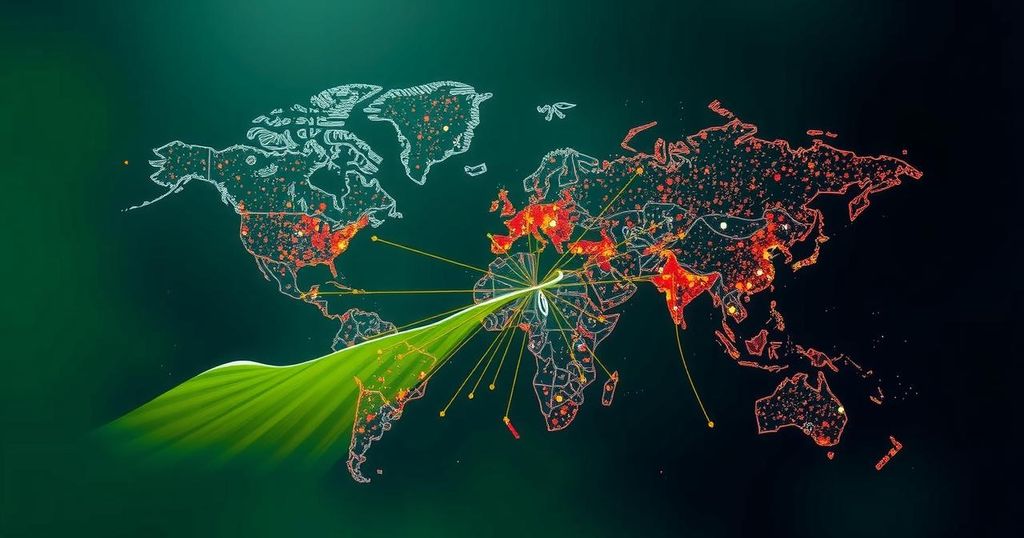A study reveals that climate change is responsible for nearly 20% of this year’s record dengue cases, highlighting the critical role of rising temperatures in spreading the disease. Researchers have identified 21 countries where the increasing heat is linked to higher dengue rates. Innovative methods like breeding Wolbachia-infected mosquitoes show promise in controlling the spread of dengue, particularly in areas experiencing severe outbreaks. The findings emphasize the growing challenges posed by climate change to global health.
Recent research indicates that climate change is responsible for nearly 20% of the unprecedented surge in dengue cases worldwide this year. Researchers focusing on the intersection of climate and health demonstrated how escalating temperatures are facilitating the spread of this disease, which is transmitted by infected mosquitoes. This analysis highlights dengue’s classification as a climate-sensitive disease, making it a prime candidate for studying climate’s impacts on health. Rising temperatures are pushing mosquitoes further into regions that were previously inhospitable, amplifying the spread of dengue fever. The study assessed the relationship between increased temperatures and dengue infections in 21 nations across Asia and the Americas, finding that approximately 19% of current dengue cases can be linked to prior climate warming. The researchers predict significant increases in dengue cases, particularly in elevated regions of Peru, Mexico, Bolivia, and Brazil, which are expected to reach optimal temperatures for mosquito proliferation in the next 25 years. This alarming trend is compounded by the World Health Organization’s reports of over 12.7 million dengue cases in 2023. Moreover, researchers cited a “massive amount of under-reporting” of cases, estimating that the actual number of infections may be closer to 100 million. At the same conference, new approaches involving the use of the Wolbachia bacteria, which can inhibit mosquito transmission of dengue, showed promising results. Brazil’s Niteroi municipality, where Wolbachia-infected mosquitoes were introduced, reported significantly lower dengue cases even amidst an outbreak in other regions. This success underlines the potential of Wolbachia to provide long-term protection for communities against the growing threat of dengue.
The findings presented by US researchers emphasize the intricate link between climate change and public health, particularly regarding vector-borne diseases like dengue. As human-driven climate change alters ambient temperatures worldwide, this results in wider geographic distribution of mosquitoes that transmit dengue. Understanding the direct impact of climate on health outcomes is a critical area of research as the world grapples with the consequences of global warming. The historical context of dengue outbreaks shows that this disease has predominantly affected tropical and subtropical regions, and as climate change progresses, vulnerable populations in previously safer areas may be at increased risk. The importance of innovative disease control strategies, such as the Wolbachia method, highlights a proactive approach to dengue prevention amidst changing environmental conditions.
In summary, the alarming link between climate change and the rise of dengue cases underscores the urgent need for integrated public health strategies to combat vector-borne diseases. With nearly a fifth of dengue infections attributed to climate warming, there is a pressing necessity to address this public health challenge. Utilizing innovative approaches like Wolbachia-infected mosquitoes may provide essential support in reducing dengue transmission, especially in areas facing the dual threat of climate change and infectious diseases. As such, understanding the health implications of climate change should be a priority for global health efforts.
Original Source: www.barrons.com






